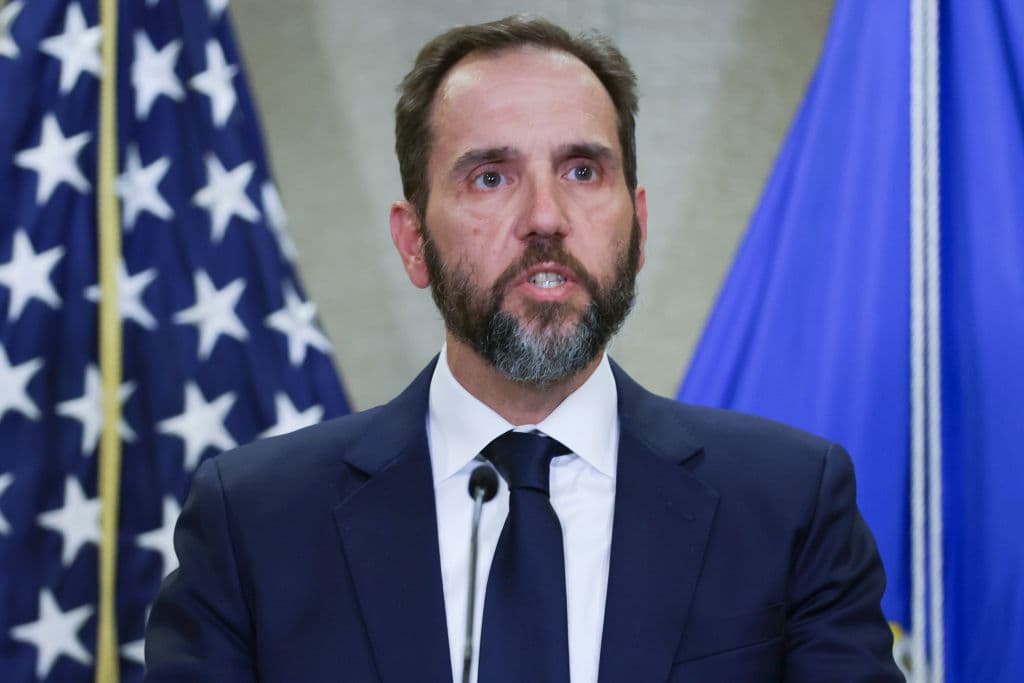Jack Smith, in What Could Be Bad News for Trump, Readies To Slim Down His January 6 Indictment
If the special counsel opts against a lengthy procession of the evidence, it could be because he is planning to streamline his case.

Special Counsel Jack Smith’s eschewal of a sequence of unprecedented mini trials over immunity suggests that he is set to overhaul his January 6 case against President Trump. That could be bad news for the 45th president.
Please check your email.
A verification code has been sent to
Didn't get a code? Click to resend.
To continue reading, please select:
Enter your email to read for FREE
Get 1 FREE article
Join the Sun for a PENNY A DAY
$0.01/day for 60 days
Cancel anytime
100% ad free experience
Unlimited article and commenting access
Full annual dues ($120) billed after 60 days

